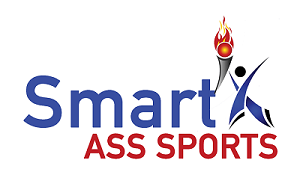How to Play Omaha on Pocket52
Omaha is a thrilling variation of poker that adds a strategic twist to the traditional Pocket52 Texas Hold’em formula. Known for its larger pots and complex decision-making, Omaha has become increasingly popular on online platforms like Pocket52. If you’re looking to broaden your poker skills or enjoy a fresh challenge, Pocket52 offers a user-friendly space to dive into Omaha action.
This guide will walk you through the basics of how Omaha is played, how it differs from other poker games, and how to get started on Pocket52.
What Is Omaha Poker?
Omaha is a community card poker game similar to Texas Hold’em, but with one key difference: players are dealt four hole cards instead of two. However, players must use exactly two of their hole cards and three of the five community cards to form the best five-card poker hand.
This results in more combinations and, often, stronger hands compared to Hold’em.
Omaha Game Types on Pocket52
Pocket52 offers various Omaha formats to suit different playing styles and bankrolls.
Common Variants:
-
Pot-Limit Omaha (PLO): The most popular form, where bets are limited to the size of the current pot.
-
PLO-5: A version where players are dealt five hole cards instead of four.
-
Hi/Lo Omaha (Occasionally available): Where the pot is split between the highest and lowest hands.
These formats can be found in cash games, sit-and-go tournaments, and MTTs (multi-table tournaments).
How to Join an Omaha Game on Pocket52
Joining an Omaha table on Pocket52 is easy:
-
Open the Pocket52 app or website.
-
Navigate to the game lobby and filter by “Omaha”.
-
Choose a format: cash game or tournament.
-
Select your preferred stakes and click Join Table.
Make sure to read the game rules listed in the table description before jumping in.
Gameplay Rules and Structure
In Pot-Limit Omaha, a full hand consists of the following stages:
-
Pre-Flop: Players receive four hole cards, and the first betting round begins.
-
Flop: Three community cards are dealt.
-
Turn: A fourth community card is added.
-
River: The fifth and final community card is dealt.
-
Showdown: The best five-card hand wins, using exactly 2 hole cards + 3 community cards.
Understanding the hand construction rule is essential. Unlike Hold’em, you cannot use just one hole card or all five community cards.
Omaha Strategy Tips for Beginners
Omaha rewards patience, calculation, and selective aggression. Here are some practical tips to improve your play:
-
Play strong starting hands: Hands like double-suited aces or connected cards increase your chances of hitting powerful draws.
-
Beware of dominated hands: Two pair or weak flushes are often outclassed.
-
Value position: Like Hold’em, being on the button gives you key advantages in Omaha.
-
Draw carefully: With more players seeing flops, pot sizes grow quickly. Don’t chase weak draws.
On Pocket52, you’ll often face a mix of beginners and seasoned pros, so adjust your play based on your table.
Managing Your Bankroll While Playing Omaha
Omaha’s variance is higher than Hold’em due to stronger average hands and more action. This makes bankroll management even more critical.
Tips for managing your funds:
-
Stick to lower-stakes games if you’re new to the format.
-
Avoid going all-in on marginal hands.
-
Use rakeback and promotions to support your bankroll during downswings.
Pocket52 also offers cashback and loyalty bonuses, which can help you stay in the game longer.
FAQ
1. What’s the main difference between Omaha and Texas Hold’em on Pocket52?
In Omaha, players are dealt four hole cards and must use exactly two, combined with three community cards, whereas in Hold’em you receive two and can use any combination.
2. Does Pocket52 offer Pot-Limit Omaha tournaments?
Yes, Pocket52 frequently runs Pot-Limit Omaha tournaments in both sit-and-go and multi-table formats. These are updated regularly in the tournament lobby.
3. Can beginners play Omaha on Pocket52 safely?
Absolutely. Pocket52 features low-stake Omaha games and freerolls, perfect for beginners to practice without risking large amounts of money.


